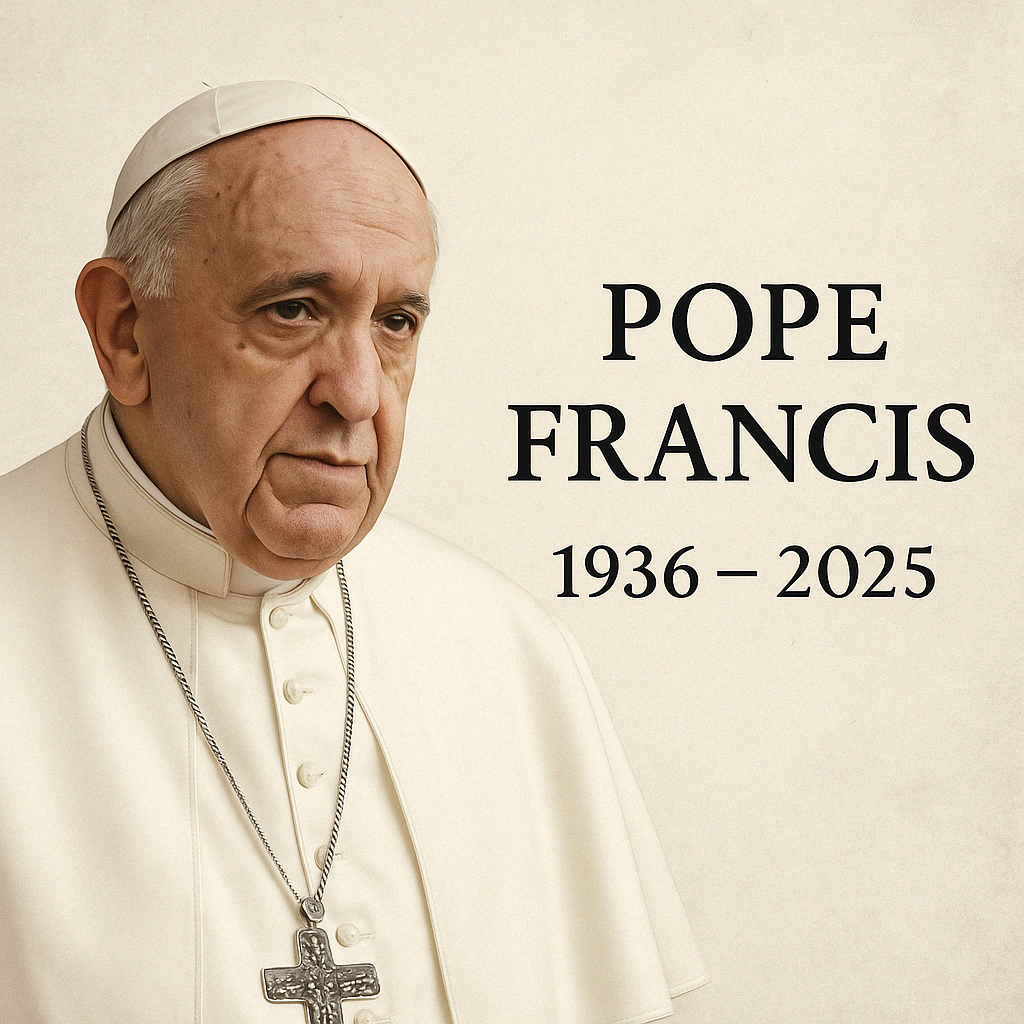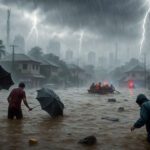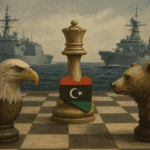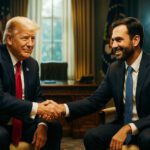Pope Francis, who passed away on April 21, 2025, at the age of 88, leaves behind a legacy defined by humility, courage, and a relentless devotion to peace. For many of us observing the ongoing crises in the Middle East, his presence felt like a rare moral compass—one willing to speak hard truths while remaining deeply grounded in compassion. His daily calls to Gaza, his condemnation of violence in all its forms, and his unwavering stance against antisemitism shaped a papacy that will be remembered not only for reform within the Catholic Church, but for moral clarity during one of the most polarising times in modern history.
In the early days of the Israel-Gaza conflict that erupted on October 7, 2023, Pope Francis chose not to sit in silence. Instead, he began calling the Holy Family Church in Gaza—Gaza’s only Catholic parish—every single day. Sometimes via WhatsApp, sometimes through brief voice calls, he reached out directly to Father Gabriel Romanelli and the 600 people sheltering within the church walls. This continued even as his own health deteriorated. Whether from his room at Casa Santa Marta or hospital recovery, his voice remained consistent: protect the children, help the civilians, seek peace.
I found it remarkable that while global leaders offered platitudes or picked sides, Pope Francis stuck to a simple but radical message—“End the violence. Let humanitarian aid reach the people. Release the hostages. And most of all, stop the killing.” He referred to the killing of two Palestinian Christian women in Gaza by an Israeli sniper as an act of “terrorism,” refusing to dilute the truth behind politically correct language.
His commitment to the people of Gaza was not a departure from Catholic teaching but a continuation of the same inclusive philosophy that defined his entire papacy. Critics often tried to frame his positions as controversial, but he never wavered. During his final Easter message, he again implored for a ceasefire in Gaza and the delivery of aid to the starving population, treating both Israelis and Palestinians with equal human dignity. That clarity—recognising the suffering on both sides while calling for justice—was Francis at his best.
And yet, this same Pope who stood by Gaza was equally vocal against antisemitism, a balance many today fail to navigate. He repeatedly denounced the resurgence of antisemitism in Europe and elsewhere, calling it a “sin against God.” He firmly upheld the reforms of Vatican II, embraced the Jewish people as “elder brothers” in faith, and made interfaith dialogue a central mission of his pontificate. During his visit to Auschwitz in 2016, Francis walked in silent prayer for over 15 minutes—speaking louder in that silence than many ever could with words.
Throughout his papacy, Pope Francis demonstrated that standing up for Palestinians didn’t require abandoning the fight against antisemitism. For him, moral consistency wasn’t optional; it was essential. He rejected extremism of all forms, condemned both Hamas’s attacks and Israel’s excessive use of force, and navigated these crises with empathy, not ideology.
In today’s climate, where statements are instantly politicised and leaders are quick to equivocate, Pope Francis chose the narrow road. He called out suffering when he saw it, whether in Gaza, Ukraine, or the camps of Myanmar’s Rohingya. His friendship with Jewish leaders and commitment to remembering the horrors of the Holocaust never conflicted with his urgent calls to help the oppressed in Gaza. That rare ability to hold empathy for both sides—without becoming paralysed by it—is what made him such a unique figure.
Pope Francis died as he lived: in service to the margins. His last recorded words to Father Romanelli in Gaza echoed a theme that defined his life: “Do not lose hope. The Lord is with you.”
As a journalist and editor who has covered the politics and conflicts of the Middle East for many years, I rarely find myself moved by the words of any leader. But Francis was different. He didn’t just speak to the world; he listened to it. And for those trapped in the chaos of Gaza, hearing his voice each evening—quiet, unwavering—was enough to keep hope alive another day.
He wasn’t the pope of one people. He was the pope of the suffering. And in this fractured world, that may be the holiest legacy of all.


















